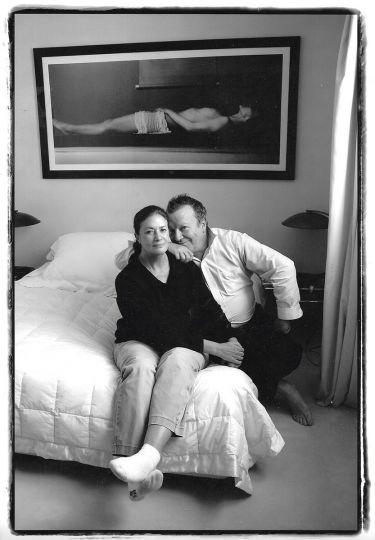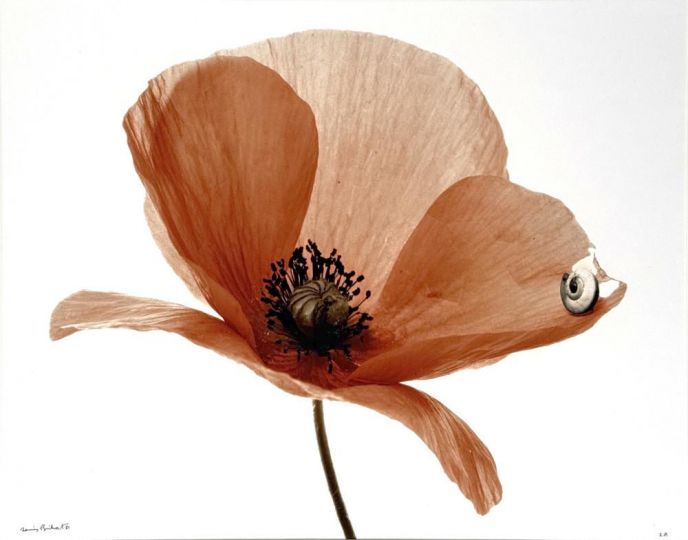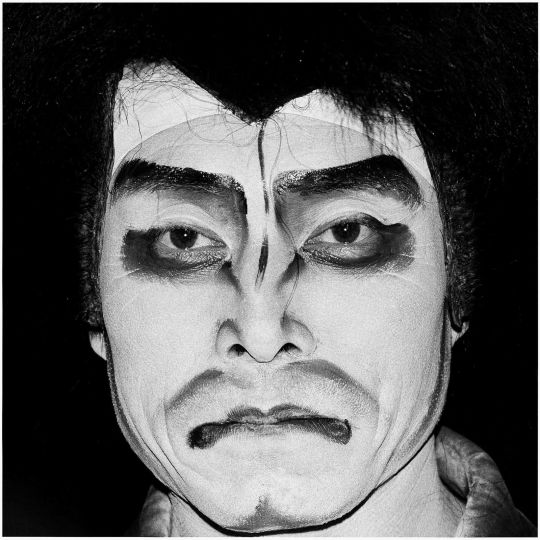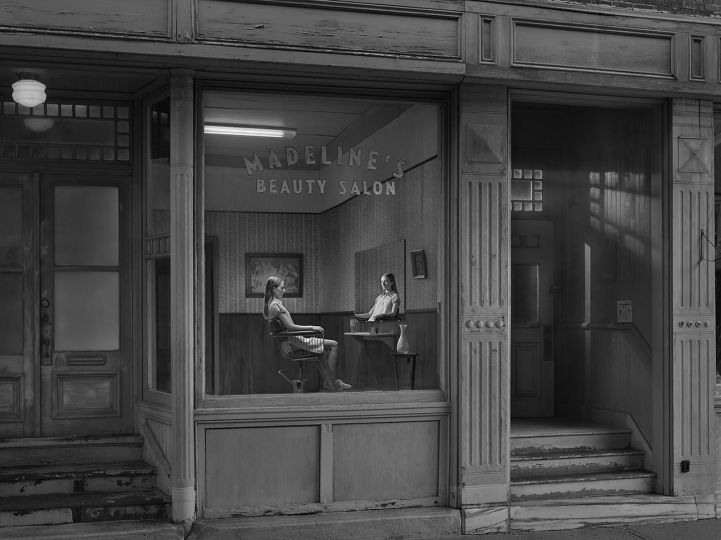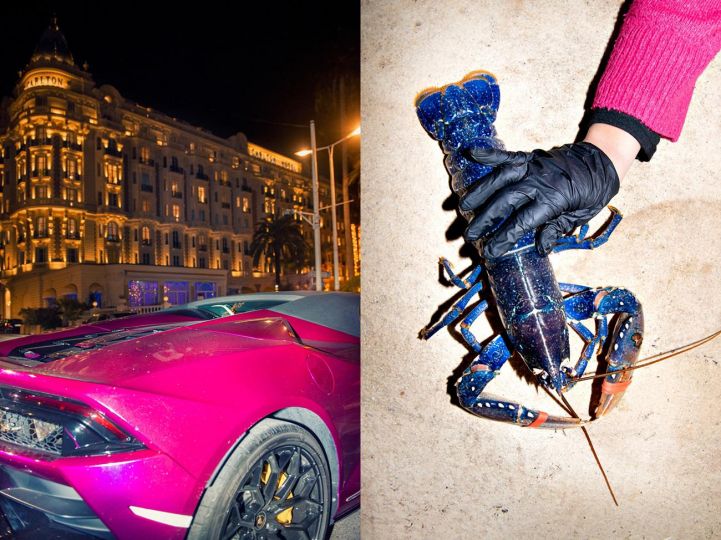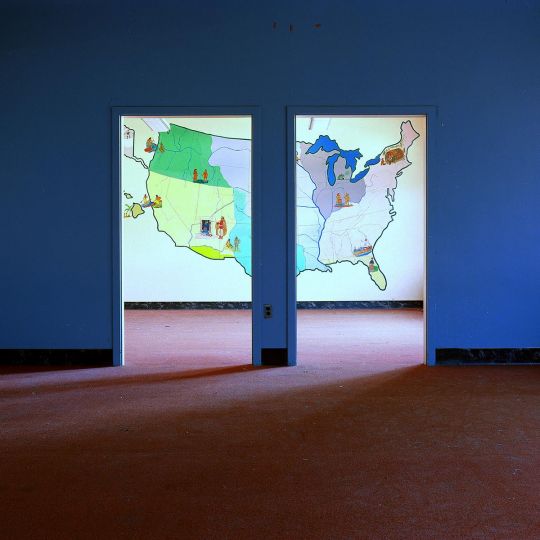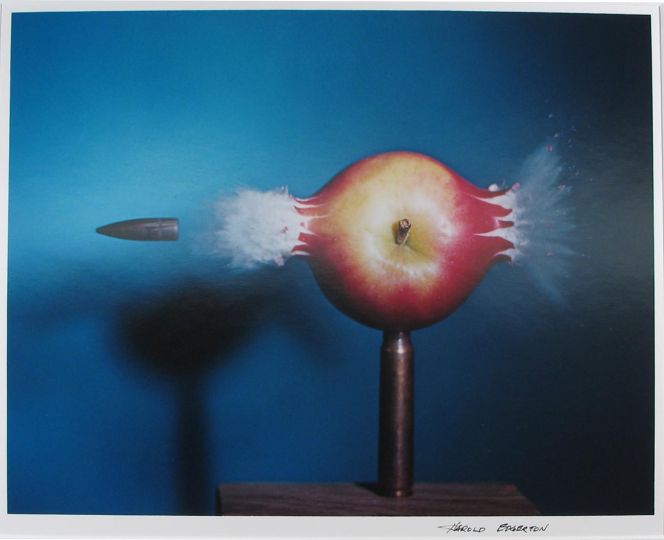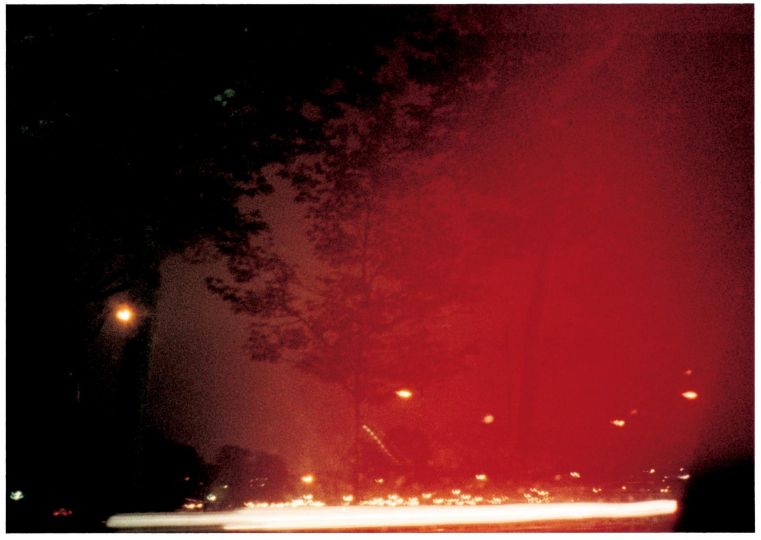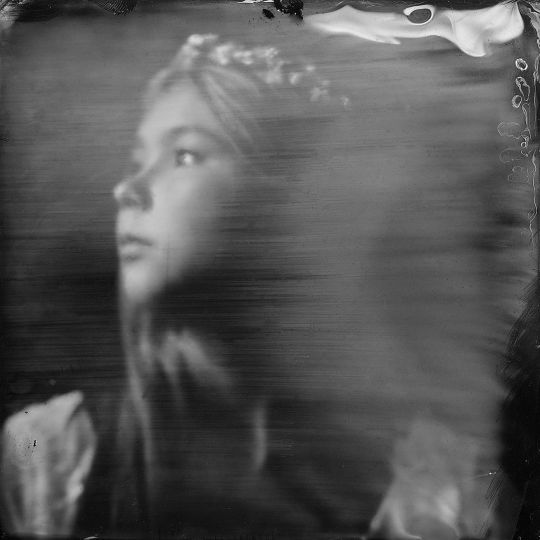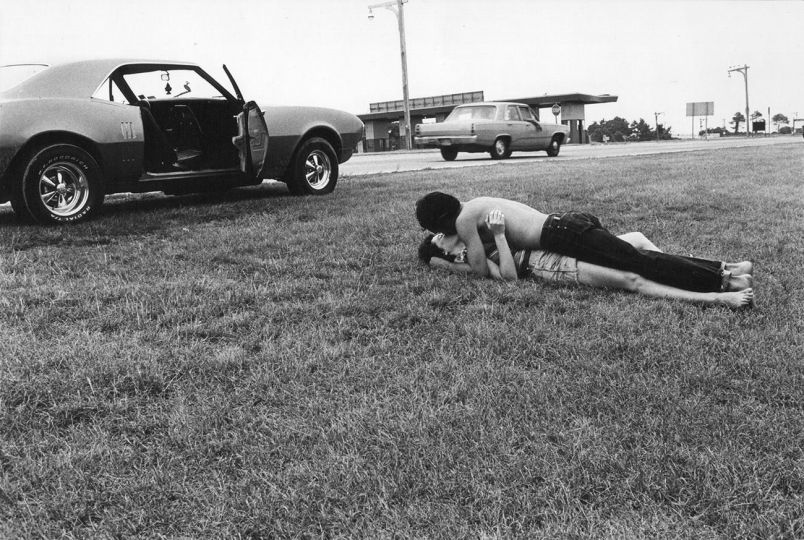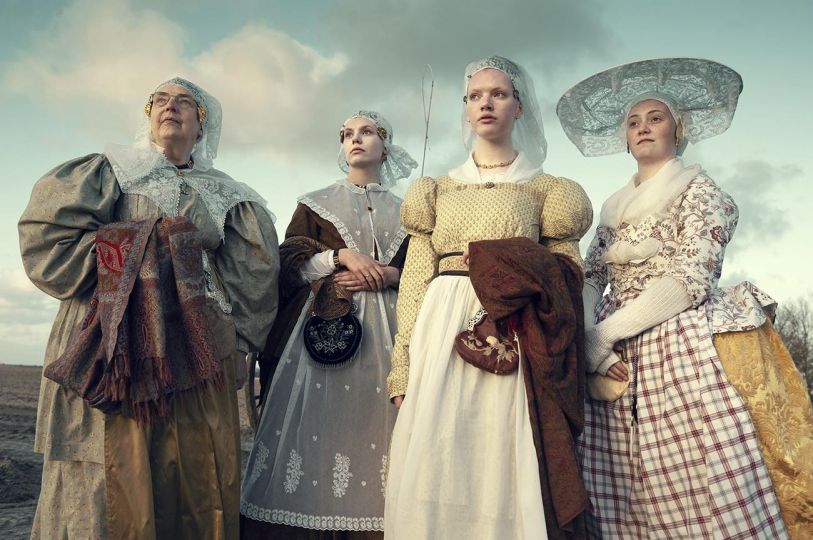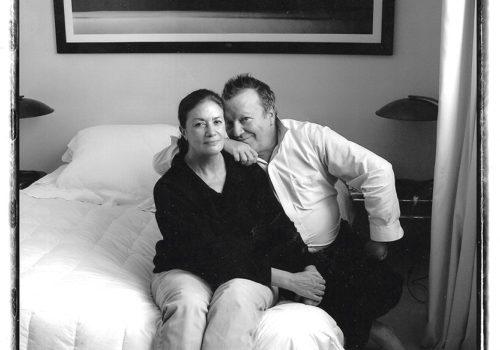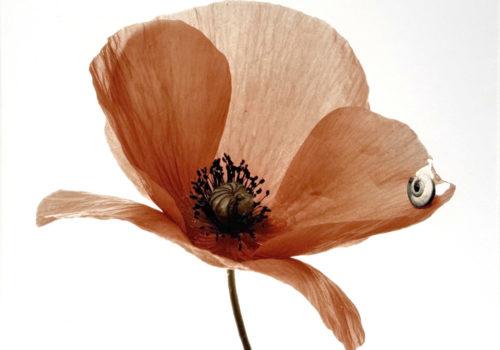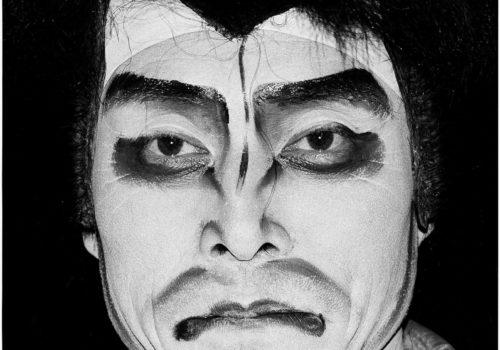Glory: My Hair, My Soul, My Freedom shows hairstyles being worn by Black women. Each hairstyle presented is based on the specific model’s personal “hair story” and is modeled after something she would wear on the street. The uniform black tone painted on the models’ skin serves as an equalizer that removes any potential prejudicial biases. Hair is made the focal point of the images, as each model is set against an either vibrantly colorful, or strikingly black background in order to accentuate the colors and shapes of her hairstyle.
Sandro’s technique brings together the past and the present and emphasizes the beauty of blackness, successfully demonstrating his ideas about racial freedom and hair. African American women have been oppressed with regards to their hair from the dehumanizing practice of shaving heads during slavery to the 1978 Louisiana Law that ruled black women had to cover their hair in public. “Today, African and other black skinned men and women are free, their souls no longer enslaved and through the styles worn on their heads their freedom shines”, said Miller.
As a combination of traditional African tribal art and the modern Black woman, My Hair, My Soul, My Freedom explored the stigma attached to black hair and other societal beauty conventions and captures the confidence, power and beauty of women.
At the age of sixteen, upon seeing the work of Irving Penn, Sandro Miller knew he wanted to become a photographer. Mostly self-taught, Sandro relied on books published by many of the great artists canonized in photographic history. Through their pictures, he learned the art of composition, lighting and portraiture. More than 30 years later, with clients ranging from Forbes, GQ and Esquire, to American Express, Coca-Cola and BMW, Sandro has secured his place as one of the top advertising photographers worldwide.
His success in the commercial world allows him to continue his personal projects: he photographed American blues musicians and various dance troupes in Cuba, worked on a project to record a dying culture in Papua New Guinea and extended endeavors with John Malkovich, his long time friend and collaborator.
Sandro Miller’s work is represented in the United States by Catherine Edelman Gallery, Chicago, and in Europe by Gallery Fifty One, Antwerp.
NAP UNLEASHED by Patricia Smith
In its beginning, earth was fractured, frail with coveting, and could not wait for us— so, flailing in the muscled clutch of grace, we blessed this sullen place. As we were born and born again, in tenements and lush, exuberant savannas, flung from hips of southern silver, lifted into life while mamas shrieked and swore, as we were born and born again, emphatic, snared within our thrash and wail, our breath already slowed by blood’s incessant question in our chests, every dazzled witness rose to name us yet again. The world was not prepared.
Inside its realm, no one could fathom us.
Inside its realm, no one could fathom us— we brazen through their shuttered doors, we huge inside their throats, we necessary storm, our newborn crowns smeared flat with blood, so hot against our little heads. The white mistake was thinking that, once rinsed and blotted dry, the clenched, rebellious snarl was simply hair with nothing more to say.
They saw instead the way our skin corrals and guzzles sun, our breathlessness, our legendary hips, they saw what commerce needed them to see—our backs grown wide and measured for the want of work. They missed the hurricane of hair, the springing from a thousand wicked roots. That springing from a thousand wicked roots was just the brash beginning, just the bray of light that hisses warning—Do not touch this hair. this vibing wire, these bellowed threads of thundering, no, do not dare to poke a prying finger into dark you do not understand. Our hair is blade when we decide that it should be—the fools who died within its kink would speak of smother if they could. Our hair is not your savior, not your kumbaya, your ticket in. When it began, so smashed and sleek with blood, we knew that it had fist. Our hair can’t be polite. Once we were slaves. Our hair was furious.
Once we were slaves. Our hair was furious, forever springing loose from plaits and bows, rejecting homemade greases meant to tame the wild and wiry bloom that snapped its bands and leapt alive at every chance. At least some part of us was running free, like flame that hungers for a sky, like praying fixed on someplace we knew heaven was.
We sang our songs but didn’t move our mouths, we burned to black inside ourselves. With rivers as our mirrors, we began to build a wall between our stolen air and us. We snapped our dresses to our throats, made sure our hair was braided thick against the spit of men.
Hair braided thick against the spit of men, we hurtled forth—for years, we mystified the whisper-tressed, but listened when they said that we were wrong, not white or silk enough, and that we’d never be unless we walked into the fire, succumbing to a hate we’d hoarded for ourselves. Because they loved their blemished daughters, mamas twisted knobs on cranky ovens, conjured flame, and made us sit on rusted, wobbling kitchen chairs beneath the ironing comb that charred our necks, beneath the lye that chewed at scalp and root, and we endured that hurt, forgot the days our chaos crown had bellowed, nap unleashed.
Our crown still fought to bellow, nap unleashed, though it was wounded, hammered down with heat and oil that stank of animals and flowers, although we wept while memorizing pale and wispy heads in magazines. We gazed and learned to suffer poisons to correct our ugly, free us from the blunder of ourselves. And as we listened, reaching up to touch a stranger’s head—a stranger head—with strands that disappeared us, trapped us in their strangling glamor, we remembered this—that we are people destined to explode.
So we exploded toward ourselves again. When we explode, we know ourselves again, we shake our funky, liberated heads, and raise our voices to the rafters—Do not dare touch these crowns. And we are Accra, and we are Alabama, Brooklyn, Watts, and we are middle finger lifted toward the seething witnesses to all this joy, and we are Trinidad and Harlem, we are bopping straight into the yesterday we were, and straight into the history we’ve made and straight into tomorrow with our rampant naps so gleefully unchecked so unrestrained, entwined ’til be become a single soul, yet none of us the same.
A single soul, yet none of us the same, we are the only government we need—
our vivid, cocky crowns stunned in their tilt and swirl, they devastate and irritate, they be our gospel, be our calling card, they be our halo, be the way we reach for sky. The crown is ours to snip or dye a hundred awkward hues, it’s ours to tuck beneath a Sunday hat, to crimp and twist, to scissor down to air, much like a man’s.
This hair is all our other breath. It’s art upon our heads, a glory spill. It’s wild, bewildering and sexy in its snarl, it’s neon, razored, locked and knotted, looped and neon, razored, locked and knotted, looped and razored, locked and neon, looped and not the business of just anyone, our hair is blatantly political, a staunch and blaring tangle, glory in our names, the gospel on our bobbing heads, it’s fierce—and yes, still furious, still springing loose from any peril set on silencing its roar.
You’ve underestimated us, you didn’t know the muscularity of kink was busily rebirthing us—it taught us all the ways to mouth our names with Serengeti tongues, it’s quarrelsome and coiled, it’s all the things but always black and coiled.
This hair is all the things. But, black and wily goddesses, we’ve always known the powerfulness of wearing our own sky, the lyric of the scar, we’ve always known that even though they dared to call us slaves, we never were. If only they had heard the freedom on our heads, the jubilant triumphant wail of all that hair, its rude unbridled verb, they would have left us free to rule our own damned selves, to live our sweet and colored lives. Our hair is throat, is knife against the throat, is song within the throat, it’s how we rock and conquer every room, our hair’s the funk, the scorch, Aretha’s growl is hair, is funk, is scorch, Aretha’s growl is one of just a million ways the tale is told. It’s told in gospel hurtling toward the rafters, told in warnings grunted blue and deeper blue by Delta gals, it’s told in songs our mamas sang before they threw those pressing combs into the fire. Go on and raise your eyes to where we rise, go on and hail the royalty we be, go on, resent the ways we’ve vowed to live our souls out loud. But do not touch this hair, the black explode, the crowning of it all. Your hands will never know a shelter in this heat, so sweetly hellish on our perfect heads.
So sweetly hellish on our perfect heads, this hair has known the yesterdays we know, has lived the history we’ve lived. Once we were slaves. And then there were the days we sat on plastic kitchen chairs while trying not to hear the sizzling iron comb, its teeth intent on disappearing us. When they were freed, embracing wild—each strand became a fist that pierced the air, a strident voice that sanctified and irritated, each and every one its tiny god. You say It’s only hair, a consequence of blood, a quirk of body. What it is is life.
And even history can’t twist that truth.
Yes. Even history can’t twist the truth, can’t warp the telling—see, our hair’s the thing that no one else will claim. It makes us like nobody else. It seems there is a world of silk, of blonde and auburn, pinkish skin that coppers under sun, but then there’s powerful nappy, there’s the feral curl, the everything there is, what black girls have that no one else imagines. Mystery prevails—it just may be the kiss of sun that’s braided in the braids, the moon that spits 12 its liquid light in dreaded ropes. The earth was not prepared for what our locks would scream.
In its beginning, earth was fractured, frail. In its beginning, earth was fractured, frail— outside its realm, no one could fathom us, our springing from a single wicked root. When we began, our hair was furious and braided thick against of spit of men.
Our chaos crown still razzles, nap unleashed, and we explode, always ourselves again, a single soul, yet none of us the same. it’s neon, razored, crimped and knotted, looped and coiled, it’s all the things but always black, our hair’s the funk, the scorch, Aretha’s growl, it’s sweetly hellish on our perfect heads.
And even history can’t twist this truth: No woman wears the crown except the queen.
diChroma photography
Elba, 21
Urbanización Ciudalcampo
28707 San Sebastian de los Reyes
Madrid – Spain
www.dichroma-photography.com


